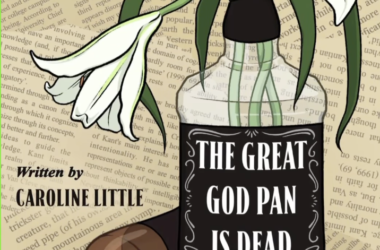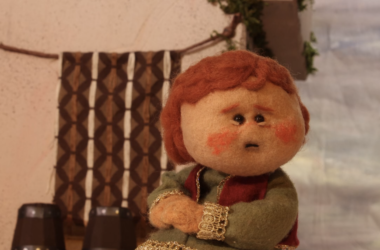Tim Burton has a distinct, dark, and quirky style that puts him in a cinematic class apart from any other director. The problem is that after creating so many successful films, his new projects are always going to be compared to his earlier “glory days.” The empire he has created is subject to unwarranted, faulty criticism merely because of the expectations that he’s planted in viewers’ minds. It’s no longer a question of how good his new movie will be, but rather how Burton-esque it will be.
I realized this after seeing Alice in Wonderland. My initial reaction was that the film was okay, but it wasn’t Burton-esque enough. Most people I spoke to held similar opinions. But after further consideration, I realized this was an unfair judgement. My critique was not based on the quality of the movie – it was based on my comparison of the movie to Burton’s other work, and this type of reasoning doesn’t make sense. When we see an actor play a certain role in a movie, we shouldn’t base our analysis of their acting on comparisons to other roles that the actor has played. This phenomenon seems to happen all the time with Burton’s work. His remake of Planet of the Apes was criticized at the time for stylistic departure, but in retrospect, the film was a great success.
The question is, what exactly makes a Burton movie a true Burton movie? A hilarious College Humor parody sums it up perfectly. They poke fun at the fact that his “secret formula” – including spirals, an outcast with daddy issues, and a recycled Danny Elfman score – is becoming less secret and more expected in each movie he makes. Furthermore, he decides to take an already odd classic story and make it a whole lot creepier, while incorporating bits and pieces of his own crazy ideas as well as some not-so-original ones. Case in point: the original Alice wasn’t bizarre enough, so he added his own twists and turns, which showed similarities to at least five other fantasy movies (including Harry Potter, Lord of the Rings, The Wizard of Oz, and The Chronicles of Narnia). Next, Burton seems to use the same people in his movies, most notably Johnny Depp and Helena Bonham Carter, while musician Danny Elfman composes the scores for all his films, which usually end up sounding the same. Throw in some spiral staircases, striped costumes, white make-up, and mad-scientist-like hair, and we’ve got ourselves a new Burton movie!
The point is this: just because Burton applies the same not-so-secret formula to his movies doesn’t mean we need to compare them in order to criticize or praise them. There’s no question that Burton is clearly a creative genius who makes creative and memorable movies. And following his own formula has never made him boring¬ – because, let’s be honest, who could have done a better job reincarnating Willy Wonka and the Mad Hatter?








